#Yiddish language
Text
We think that it’s worth noting that the Soviet Union actually preserved the Yiddish language.
Whilst it’s true that Jewish life under the Soviet Union was far from perfect, and thus eligible to be critiqued — the diasporic Yiddish language would NOT have survived the Holocaust if it weren’t for the USSR’s support. There was a Yiddish language magazine called “Sovietish Haimland”, from 1961, which published Jewish art, which was particularly encircling Jewish culture. It also carried Yiddish lessons in a serialized textbook. 100s of Yiddish established writers contributed to this magazine. However, after the dissolution of the Soviet Union, this magazine no longer recieved that same state support and came to an end.
Again, we cannot act like the Soviet Union were perfect. The USSR was far from it. it is there that we can see where to learn from, where to do better. Communists look at history to learn from it; we see where mistakes were made even by our forefathers that tried to implement revolutionary reforms.
But the USSR actively combatted the Nazi’s attempts to systemically destroy the Yiddish language— and that is noteworthy.
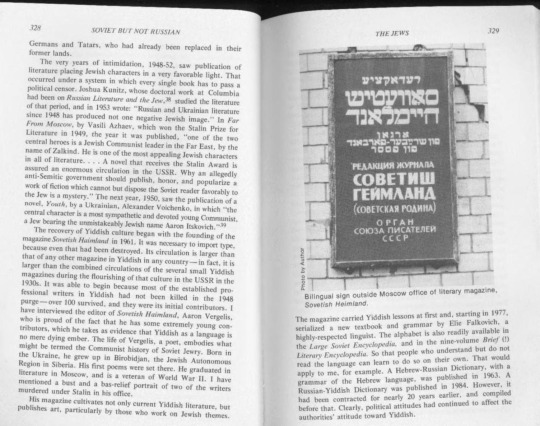
This is from “Soviet but Not Russian: The ‘Other Peoples of the Soviet Union” by William Mandel. We are working on getting this PDF resource in our Drive, along with a Soviet Union section, if people would like to read it themselves.
We must look at our history, especially at our Communist forefathers, and assess what we need to work on as a society to truly liberate everyone from the tyranny of Capitalism. Looking to the Soviet Union, we can see many examples of great progress made as much as we can see great losses.
709 notes
·
View notes
Text
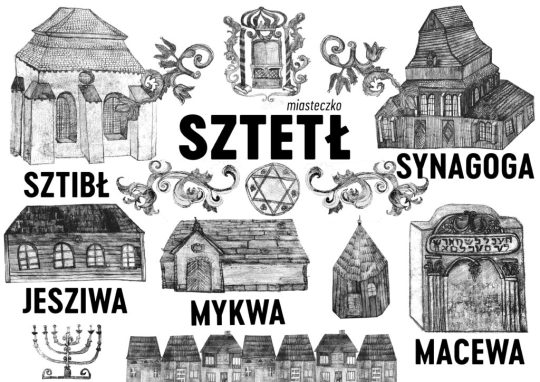
Drawing by Klaudia Kiercz-Długołęcka
Sztetł
Yiddish - שטעטל
English transcription - Shtetl
Meaning - a town
Sztibł
Yiddish - שטיבל
English transcription - Shtibl
Meaning - a house or a room used for communal Jewish prayer
Jesziwa
Yiddish - ישיבֿה
English transcription - Yeshiva
Meaning - a traditional Jewish educational institution focused on the study of the Talmud
Mykwa
Yiddish - מיקווה
English transcription - Mikvah
Meaning - a bath used for the purpose of ritual immersion to achieve ritual purity
Synagoga (this one is in Polish)
Yiddish - שול
English transcription - shul
Meaning - synagogue
Macewa
Yiddish - מצבֿה
English transcription - Matzevah
Meaning - a headstone or tombstone marking a Jewish grave
#jewish#jews#jewish culture#jewish history#yiddish#yiddish culture#yiddish language#learning yiddish#ashkenazi#ashkenazi jews#polish Jews#jews in poland#yiddish words#shtetl#shtibl#yeshiva#mikvah#shul#matzevah#jidysz#yidish#ייִדיש#Żydzi w Polsce#żydowska kultura#judaica#jeśli zapomnę o tobie Jerozolimo niech uschnie moja prawica#yiddish dictionary#jumblr
31 notes
·
View notes
Text
Moygashel sounds like a Yiddish word used to describe a troublesome relative.
But it’s not.
It’s the name of an Irish village.
It’s derived from the Irish name Maigh gCaisil, meaning “plain of the stone fort”.
#personal stuff#dougie rambles#ireland#northern ireland#yiddish#or lack thereof#moygashel#Yiddish language#except not really#Irish languge#gaelige#what#i am so sorry
3 notes
·
View notes
Text
Online English to Yiddish Translator: Accurately Translate English to Yiddish
The World of Yiddish Language: How to accurately translate English to Yiddish
In a world where languages serve as a tapestry, weaving together diverse cultures and communities, the art of translation stands as a vital thread, connecting people across linguistic barriers. Yiddish holds a unique place, carrying within its words the history, traditions, and resilience of a remarkable people. In…
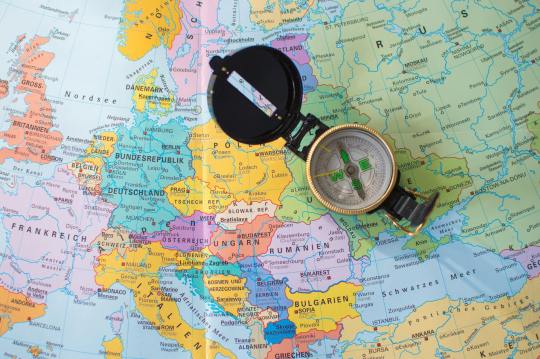
View On WordPress
#cultural heritage preservation#English to Yiddish translation#LanguageXS#translation challenges#Yiddish language#Yiddish-speaking community
0 notes
Text
Some of you need to re-evaluate the way you talk about Yiddish because it's getting weird.
Disclaimer: Yiddish is my native language. I was forced to stop speaking it at a very young age and am only now getting back into it. I am very immersed in the academic discourse and am sick and tired of it.
I've been seeing people pitting Hebrew and Yiddish against each other for ages, and it is truly disgusting.
Yiddish has a difficult standing in Israel. It was the language of a large part of the Jewish people killed during the Shoah. But, contrary to popular belief, it is not a dead language.
Pitting Hebrew and Yiddish against each other is counterproductive at best, but also really dangerous. I've been called a traitor for learning Yiddish "in a time like this". I've been told that it's a useless language, that I would be much better off learning modern Hebrew. And I see all of the bad-faith takes from goyim, switching back and forth between painting Ashkenazi Jews as the ultimate Evil and vilifying (((the Zionists))) for 'erasing' Yiddish culture in Israel.
I have had the privilege of meeting and working with Mendi Cahan, founder of Yung Yidish Tel Aviv, who is one of the most inspiring people I've met. His life's work is a collection of Yiddish books, about 80.000 volumes strong, located in the Bus Station in Tel Aviv. And as he put it, it's easy to give into the hopelessness, that such a huge chuck of that culture was killed. But we cannot let that happen. Yiddish is alive and well. Native speakers exist and if you genuinely, truly want to help maintain it, there are ways for you to do that:
YIVO
Yiddish book center
Yung Yidish Tel Aviv
Medem Library
Video of Mendi Cahan talking about Yiddish culture in Israel (German website with German subtitles but the video itself is in English)
If you don't have anything productive to say, don't say anything.
#judaism#jumblr#jewish#eden talks#yiddish#young Yidish tel aviv#yiddish book center#yivo#jewish languages#jewblr#israel
1K notes
·
View notes
Text
FRIENDS — PLEASE SHARE!
The Sholem Aleichem Cultural Center in the Bronx was recently the victim of antisemitic vandalism. They have started a GoFundMe to cover cleaning costs. They need our help! The center is a vital Yiddishist organization that has been serving New York for over 50 years, and they are in desperate need of financial assistance. Please reblog and share widely!!!! A gitn shabes.
499 notes
·
View notes
Text
“There’s a great Yiddish expression that says, “If I knew God, I’d be God.” In fact, I think that claiming that you “know God’s will” is an act of incredible hubris. Instead, what we say about God has much more to say about us than about God. There are, in fact, a whole range of different theologies within Judaism (you can find some of them in the terrific books “Finding God” and “The God Upgrade,” both of which describe a whole range of differing, and sometimes even conflicting, theologies.) And while I can only speak personally here, to me, “God” isn’t really a noun at all—it’s a verb. Here’s why. The most common name that God gives Godself in the Torah is “YHWH,” a name that is sometimes thought to be so holy that no one was allowed to pronounce it. But that’s not exactly right—it’s not that “YHWH” was not allowed to be pronounced, it’s that it is literally unpronounceable, since it consists of four Hebrew vowels (yod, hay, vav and hay). By the way, that’s also why some people incorrectly call this name “Yahweh,” since (as Rabbi Lawrence Kushner once said), if you tried to pronounce a name that was all vowels, you’d risk serious respiratory injury. But even more importantly, the name YHWH is actually a conflation of all the tenses of the Hebrew verb “to be.” God’s name could be seen as “was-is-will be,” so God isn’t something you can’t capture or name—God is only something you can experience. And indeed, when Moses is at the burning bush, having just been told by God that he will be leading the Israelites out of Egypt, he says, “Suppose I go to the Israelites and say to them, ‘The God of your fathers has sent me to you,’ and they ask me, ‘What is his name?’ Then what shall I tell them?” God responds that God’s name is “Ehyeh asher ehyeh,” which is often translated as “I am what I am.” But it could also be translated as, “I am what I will be.” So God is whatever God will be—we simply have no idea. Indeed, for my own theology, I believe that God is found in the “becoming,” transforming “what will be” into “what is.””
— Rabbi Geoffrey A. Mitelman
5K notes
·
View notes
Text
Dear means 'valued; precious; beloved'. However, in certain expressions it also means 'expensive', such as in to cost dear. This meaning, inherited from Proto-Germanic, became dominant in cognates of dear, such as Dutch duur, German teuer, and Swedish dyr. The infographic tells you the whole story.
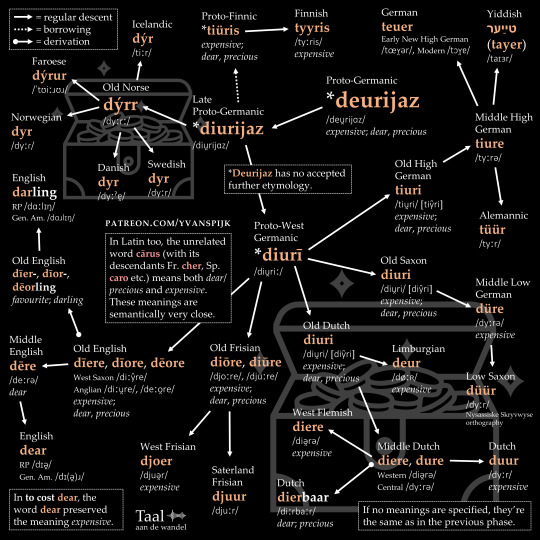
#historical linguistics#linguistics#language#etymology#english#dutch#german#low saxon#frisian#old frisian#old saxon#old high german#old english#old dutch#middle high german#middle dutch#middle english#middle low german#lingblr#proto-germanic#proto-west germanic#yiddish#west flemish#limburgian#saterland frisian#faroese#icelandic#norwegian#swedish#danish
103 notes
·
View notes
Text
Some actual Yiddish phrases for Speak Your Language Day, because the top post in the Yiddish tag is extremely inaccurate:
אַ תּירוץ פֿאַר די בענטשליכט - a teruts far di bentshlikht: lit. "an excuse for the shabbat candles", fig. "a terrible excuse"
אָט ליגט דער הונט באַגראָבן - ot ligt der hunt bagrobn: lit. "here the dog is buried", fig. "that's where the problem lies"
אמת װי גאָלד - emes vi gold: lit. "true as gold", fig. "indisputable truth"
קאַצן־יאָמער - katsn-yomer: lit. "caterwaul", fig. "hangover"
אַ גאַנץ יאָר שיכּור, פּורים ניכטער - a gants yor shiker, purim nikchter: lit. "drunk all year but sober on Purim", fig. "someone who does the opposite of what expected"
These are just a few, of course there are way more!
ייִדיש רעדערס, איך װאָלט געװען זײער צופֿרידן אױב איר װאָלט צוגעגעבן מער!
519 notes
·
View notes
Text
reminder that medic is implied to be jewish. if anyone wants a free jewish hc it’s right there.
#the OST song ‘archimedes’ is klezmer!!#he speaks with a yiddish inflection!! (omg no way other languages have accents too????????? WOAAAAAHHH)#not to mention his outfit in the halloween comic i think was intended to be albert einstein#tf2#the medic#team fortress 2
488 notes
·
View notes
Text
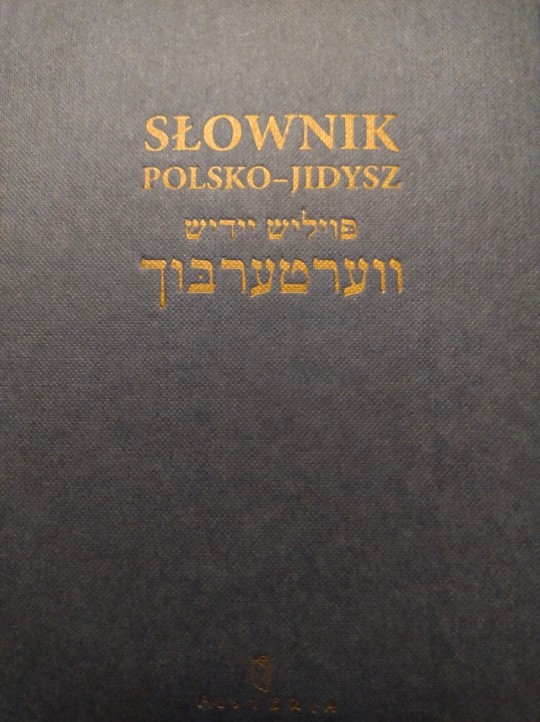
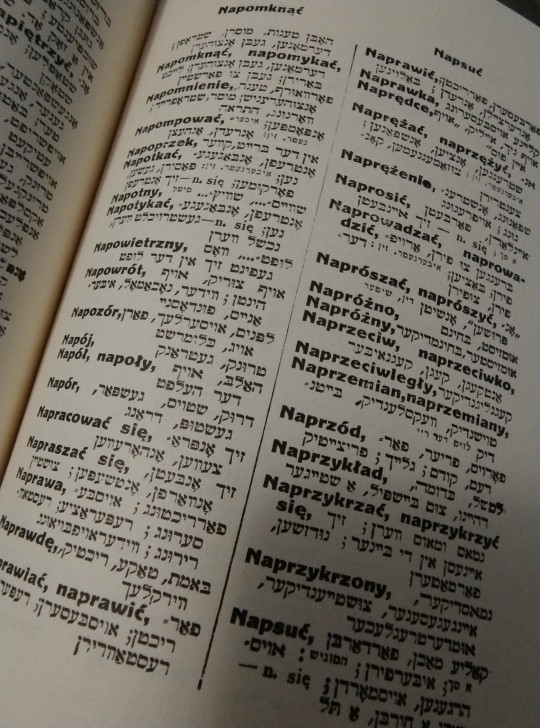
Look what a treasure I got!!
It's the biggest Yiddish-Polish dictionary ever published! Almost 2000 pages! 😁
22 notes
·
View notes
Text
shm-reduplication
You know when you repeat a word but start it with shm instead of the original letter to be ironic, sarcastic, or derisive?
Like the U.S. congress might say, “Budget? What budget? Budget shmudget.”
This is called shm-reduplication, and English borrowed this construction from Yiddish!
When a language has a regular grammatical process whereby a word or part of a word is repeated to form a new meaning, this is called reduplication.
Here’s a fun article from the Atlantic about shm-reduplication:
If you want to learn more about Yiddish, a really fun and informative book on the topic is Born to Kvetch: Yiddish language and culture in all its moods:
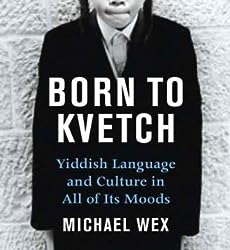
349 notes
·
View notes
Text
hehehehe i got a thermal label printer that can handle Yiddish/Hebrew letters
time to label everything in the house with Yiddish vocabulary words :3
124 notes
·
View notes
Text
after too long in exile
I hear Yiddish
and feel immediately
at home.
I hear Yiddish
and the rhythms sound
like family.
I hear Yiddish
and my heart yearns
for more.
I hear Yiddish
feel Yiddish
want Yiddish
am Yiddish
I hear Yiddish
and I do not understand
a word.
#jumblr#judaism#yiddish#poetry#jewish poetry#dandelion poetry#jewish dandelion#galut#diaspora#ashkenazi jewish#jewish feels#what a strange sort of pining it is#when the thing you are aching for is itself a language of exile
359 notes
·
View notes
Text

#jumblr#jewish#jews#nesyapost#jewish history#judaism#jewish culture#yiddish#Christmas#linguistics#i love you yiddish speakers so much#i asked my hassidic friend and he confirmed lol#language#ashkenazim
91 notes
·
View notes
Text
Stop gatekeeping Yiddish among other Jews.
Not religious? Cool, you can still learn and speak Yiddish.
Not Ashkenazi? Cool, you can still learn and speak Yiddish.
Not fluent? Cool, you can still learn and speak Yiddish.
Queer? Cool, you can still learn and speak Yiddish.
Young? Cool, you can still learn and speak Yiddish.
If we really want to keep Yiddish alive as a language then we need to stop gatekeeping it from other Jews.
568 notes
·
View notes